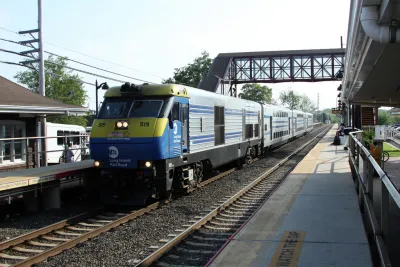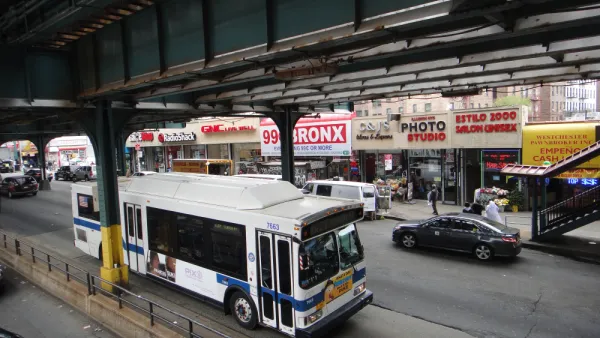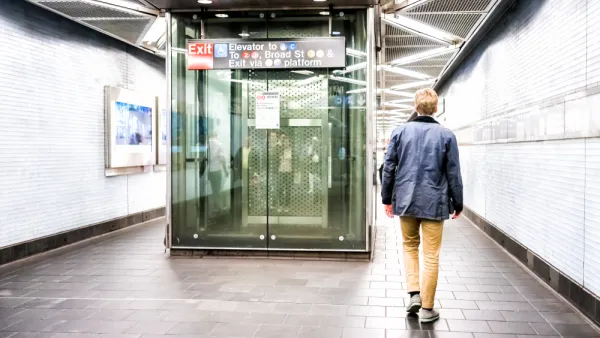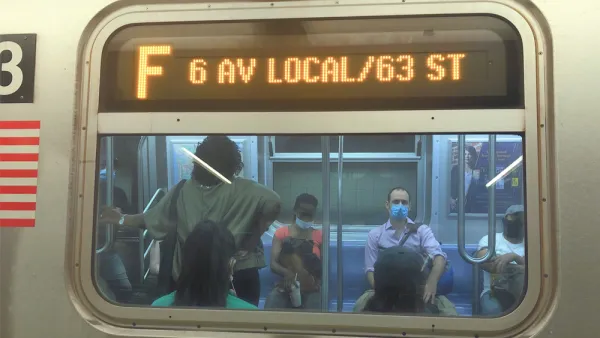Long Island's two major transit services, MTA's LIRR trains and the NICE bus system, are less coordinated than they could be. This has a big impact on ease of movement for low-income residents.

Alon Levy argues that Long Island's trains and buses suffer from a lack of coordination. The result, beyond diminished efficiency, is that low-income residents use one system while well-off commuters use another.
On one hand, "The LIRR has schedules and park-and-rides that assume passengers are affluent car owners who take the train to get to their 9-to-5 Manhattan jobs." On the other, "There's a beleaguered bus system, the Nassau Inter-County Express (NICE), formerly known as Long Island Bus. NICE ridership, already at a 15-year low five years ago, has continued to fall."
Transit on Long Island could be more efficient and equitable if the systems incorporated "fare integration, schedule integration, and integration between infrastructure and operations planning." One example of potential efficiency gains: more low-income riders could fill trains on off-hours, easing the strain on slower buses.
Levy concludes, "Can riders rely on the LIRR without memorizing a schedule? Can they use it for trips at all times of day? The lack of interest in answering these questions shows the LIRR's priority is still suburban park-and-ride passengers who go to Manhattan in the morning and return in the afternoon."
FULL STORY: On Long Island, Transit Operates as Two Separate and Unequal Systems

Analysis: Cybertruck Fatality Rate Far Exceeds That of Ford Pinto
The Tesla Cybertruck was recalled seven times last year.

National Parks Layoffs Will Cause Communities to Lose Billions
Thousands of essential park workers were laid off this week, just before the busy spring break season.

Retro-silient?: America’s First “Eco-burb,” The Woodlands Turns 50
A master-planned community north of Houston offers lessons on green infrastructure and resilient design, but falls short of its founder’s lofty affordability and walkability goals.

Test News Post 1
This is a summary

Analysis: Cybertruck Fatality Rate Far Exceeds That of Ford Pinto
The Tesla Cybertruck was recalled seven times last year.

Test News Headline 46
Test for the image on the front page.
Urban Design for Planners 1: Software Tools
This six-course series explores essential urban design concepts using open source software and equips planners with the tools they need to participate fully in the urban design process.
Planning for Universal Design
Learn the tools for implementing Universal Design in planning regulations.
EMC Planning Group, Inc.
Planetizen
Planetizen
Mpact (formerly Rail~Volution)
Great Falls Development Authority, Inc.
HUDs Office of Policy Development and Research
NYU Wagner Graduate School of Public Service




























